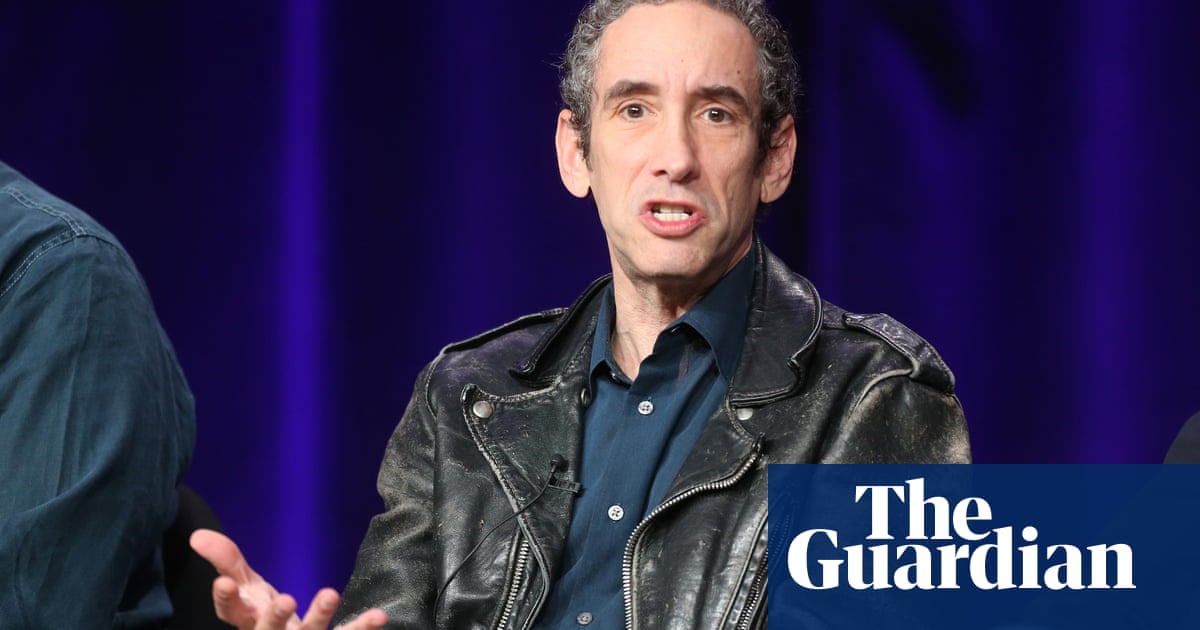
It was a tough week in tech.
The top US health official warned about the risks of social media to young people; tech billionaire Elon Musk further trashed his reputation with the disastrous Twitter launch of a presidential campaign; and senior executives at OpenAI, makers of ChatGPT, called for the urgent regulation of “super intelligence”.
But to Doug Rushkoff – a leading digital age theorist, early cyberpunk and professor at City University of New York – the triple whammy of rough events represented some timely corrective justice for the tech barons of Silicon Valley. And more may be to come as new developments in tech come ever thicker and faster.
“They’re torturing themselves now, which is kind of fun to see. They’re afraid that their little AIs are going to come for them. They’re apocalyptic, and so existential, because they have no connection to real life and how things work. They’re afraid the AIs are going to be as mean to them as they’ve been to us,” Rushkoff told the Guardian in an interview.
In his most recent book, last year’s Survival of the Richest: Escape Fantasies of the Tech Billionaires, Rushkoff strung together a series of observations about the tech elite, often gleaned from his many encounters at conferences and private lectures with them.
Rushkoff said that he believes that the tech billionaires are in escape mode – planning missions to Mars, creating island bunkers or moving to higher ground – in the event of “The Event”( code for catastrophic climate collapse) and by creating a virtual “metaverse”, fulfilling the prophecy that the tech revolution was always about preparing us for a world in which it was no longer possible to go outside.
He’s called this “The Mindset” – an analysis of the way Silicon Valley technocrats think. “For them, the future of technology is about only one thing: escape from the rest of us,” he wrote in the book’s opening pages. “They’ve reduced technological progress to a video game that one of them wins by finding an escape hatch.”
He cites a grim list of examples by way of illustration: Elon Musk and Jeff Bezos pursuing space migration fantasies; Peter Thiel’s New Zealand compound; Mark Zuckerberg’s digital universe and others pursuing technologies toward longevity, cloning and those creating large, multiple partner families.
The problem with this behavior, Rushkoff points out, is that it does not and will not work.
“They’re not getting off the planet, they’re not going to live forever. They’re just living out their fantasies. They are eugenicists. There’s a reason why they got along with Jeffrey Epstein and Richard Dawkins – people who say genes are the only things that matter, we live in an entirely material universe, there is no soul, humans can be auto-tuned and anything between the ones and zeros is just noise,” he said.
Rushkoff continued: “It’s a pure form of the same sort of sociopathic capitalism that we saw from the British East India Company or [Thomas] Hobbes talking about Native Americans. But now they have a technology that amplifies sociopathic tendencies.”
To Rushkoff, author of seven books on new media and popular culture, including Cyberia: Life in the Trenches of Hyperspace in 1994, government warnings of the kind seen last week about social media are belated.
“What happened to the cigarette companies will eventually happen to the social media companies,” he predicts. “They’ve had all the research for 20 years, and they’ve been knowingly saying this stuff is not harmful when they know it to be harmful.”
At the same time, he’s noticed that Gen Z may have a less pathological relationship to technology – their phones – than millennials or their parents. Talk to kids and you discover that “their only problem with phones is that their parents are on them too much and don’t make eye contact”.
Rushkoff’s renunciations are not new. The gen X techno-optimist was, at one time, a proponent of decentralization, crypto-currency, file-sharing and other technologies initially hailed as disruptive and corrective to the old order. But alongside some benefits, they have also produced extremism, secrecy, environmental damage and fraud.
With a new tech revolution in the works in the form of AI, cyber-futurism is looking even less palatable. And its proponents and leading figures are looking less free information revolutionaries and more like reactionary capitalist moguls.
Elon Musk’s decision to platform Florida governor Ron DeSantis on Twitter, notwithstanding the glitches, was significant in confirming Musk’s alignment with Republicans. The direction of political travel for the tech lords was apparent four years ago when Zuckerberg and Thiel had dinner at the White House with Donald Trump.
But Rushkoff isn’t a fan of the surgeon general’s warnings, either, swathed in worried concern.
“They often come off as controlled, restrained and in favor of slowing down the wheels of progress. It often comes off with a squeamish, hand-wringing, pearl-clutching tone. It’s not that it’s just unattractive. It’s infantilizing and it doesn’t help anybody. I want to become Muskian myself at that point. It’s like, ‘Fuck it, fine!’”
The solution to the modern world’s explosion of tech challenges, he argues, is not government, but in personal choices and responsibility.
The only way to rebel is to be human and aware, Rushkoff said. “Be social, get your feet on the ground, make eye contact, have sex, meet people, breathe the air. The more real-life ballast you have, the less this brittle, ideological, abstracted, social media-mediated universe bears upon your daily existence.”
"come" - Google News
May 28, 2023 at 05:00PM
https://ift.tt/4nYSzRj
‘They’re afraid their AIs will come for them’: Doug Rushkoff on why tech billionaires are in escape mode - The Guardian
"come" - Google News
https://ift.tt/YTJcvG3
Shoes Man Tutorial
Pos News Update
Meme Update
Korean Entertainment News
Japan News Update
Bagikan Berita Ini














0 Response to "‘They’re afraid their AIs will come for them’: Doug Rushkoff on why tech billionaires are in escape mode - The Guardian"
Post a Comment